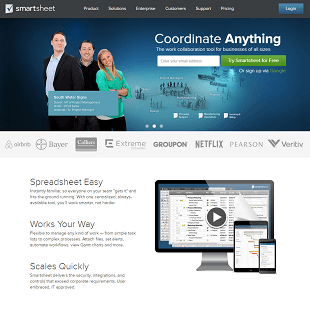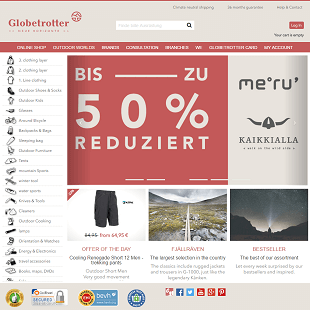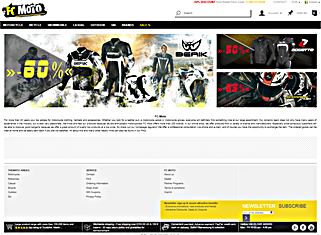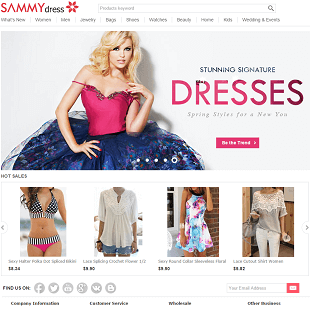The online retail store world has another entrant in the form of Jumia, a Nigeria-based online emporium that offers possibly the most extensive lineup of products outside of Amazon, and we have to compliment its creators for their ambition and the scope of their achievement. The store’s site, which boasts of offering over 100,000 products, can be found at Junia.com.ng.
The story of how a retailer of such grand scope got off the ground in Nigeria is a compelling one. In 2012, the company was founded with the aim of becoming the one-stop shop for retail in Nigeria, using best practices both online and offline.
The firm started a scant three years ago with three employees, and now has a staff of one thousand young, entrepreneurial Nigerians. This includes a customer service department of over 150 team members on hand to serve your Nigerian online shopping needs. Jumia is now the largest online store in Nigeria, and delivers to all 36 states within the country. And considering the civil strife currently roiling parts of the country, this is a good deal harder than delivering to all 50 states in America.
Over 700,000 guests visit the site daily, making it something of an online meeting place for Nigerians and for other Africans who want to get an empowering feel for what large-scale online success looks and feels like.
Featured Products
It would take the balance of this article just to list the products on offer, so we will content ourselves with a quick tour of their main categories, which include mobile phones, fashion, home and office, computing, cameras & electronics, watches & sunglasses, baby toys & kids, health & beauty, sports & fitness, games & consoles, automotive, luggage, books, movies & music, weddings, groceries, and temptations. Indeed there are temptations aplenty at the site for those with naira (Nigeria’s currency) to burn.
The website indicates that a high percentage of the goods for sale are Nigerian-made or made in other countries in Africa, although major global brands are well-represented in apparel, toys, and electronics devices. Jewelry and clothing are the areas where global brands reside next to local ones, and price-conscious consumers will naturally be drawn to the less expensive local offerings. The critical importance of a site like this for local manufacturers cannot be overstated, and the website makes clear that its support of local manufacturers has offered a significant boost to their business.
Prices
We can’t really survey the prices for 100,000 items, so we pulled a few out of a hat, and here they are. A Corningware 9.5 inch pie plate costs 3,750 naira, on sale from its usual price of 4,007 naira. Oh, the exchange rate these days is just over 200 naira to the U.S. dollar, so that pie plate costs about 18 dollars. Dresses tend to run between 5,000 and 15,000, or between $25 and $75, and other items are similarly priced, well below U.S. levels, but certainly still a bite for many rising Nigerians.
It’s clear, however, that the company is putting a premium on removing any premium from its prices, and toward that end, the site has parallel categories that are based on price levels, to allow shoppers to remain within their price range, and still sample all the offerings they might have a realistic chance at purchasing. For those who would like to avoid shipping costs, the company allows pickup at several stations including in Ikeja, Lekki, Port Harcourt, Abuja and others. A more complete list is available on the website.
Criticism
The site runs its own customer feedback page, which shows over 90% of customers to have been satisfied with their shopping experience. The site won high marks for the professionalism of its merchants and customer representatives, product quality, and delivery services. Some customer comments criticized the firm for its policy of not negotiating prices, and we can ascribe that complaint, perhaps, to culture shock arising from rapid modernization.
Others wished that the firm offered used products, and perhaps that is a business opportunity that is waiting for tomorrow’s Africa-based online retail operation.
Customer Service
While you might expect service standards in an emerging nation like Nigeria to lag those of developed countries, there’s really not that much of a lag. When Jumia started out, their average delivery time within Nigeria was about one week. Today most deliveries are completed within five days and many are completed in one day. The firm sports its own fleet of over 500 delivery vehicles, essentially operating their own national shipping service, augmented by their interaction with 300 local dispatch fleets and 18 hubs located in different Nigerian cities. On Black Friday 2014, the store’s server was hit with over 1.5 million hits, setting a record in Nigerian retail.
The site offers a free return policy for products that Jumia agrees are faulty in workmanship or materials, and the firm will offer replacement, credit or a full refund. Even if the product is fault-free, if you receive it and decide you don’t like it, you can return for a refund within a 14-day return policy timeline, provided it has not been damaged, and the refund will even include your shipping charges. This policy applies to all products except personal hygiene items such as cosmetics, undergarments, fragrances, or beauty products.
When the time comes to pay, you can use Africa-based payment systems known as Paga or Verve, credit cards, a First Naira Bank card, Cash on Delivery, or a Secure Socket Layer (SSL) technology for online payments to ensure incidents of fraud are prevented. Nigeria, of course, is the country where some globally famous email-based scams originated, and so we can expect Nigerians to be fairly sophisticated when it comes to avoiding fraud as well.
Shipping charges, by the way, vary according to which section of Nigeria you live in. If you are in an area experiencing civil turmoil, for example, we can expect that the shipping charge would be a bit higher to compensate the deliverers for the added challenge of getting your goods to your door.
The store also allows its customers to pay in installments under a program run in partnership with First Bank. This is a critically valuable feature for less affluent Nigerians who are not able to amass very much in the way of savings, but like anyone else, would like to shop occasionally, and can likely find things on the site that are of better quality and even lower price that what is available locally.
And what about Nigerian consumers who don’t yet have Internet access? Jumia has not neglected or omitted this major portion of the population in any way. The company has fove hundred offline sales agents walking the streets of Nigerian towns, offering Jumia wares through kiosk-based devices that allow access to consumers who are still new to the emerging economic powerhouse that this country, considered along with South Africa to be the main engine of African growth, is rapidly becoming.
Summing Up
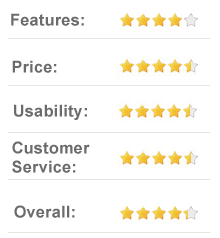
It’s encouraging to see such rapid and thorough online retail success in Nigeria in the form of this major corporate operation. And Jumia sales template is spreading. Although the firm does not currently deliver outside of Nigeria, they have opened sister operations in Morocco, Egypt, Kenya, and the Ivory Coast, and consumers in those nations are encouraged to visit the Jumia online store in those countries to see the latest in, well, just about everything. Let’s hope this idea continues to grow, and that the firm’s success grows with it.





